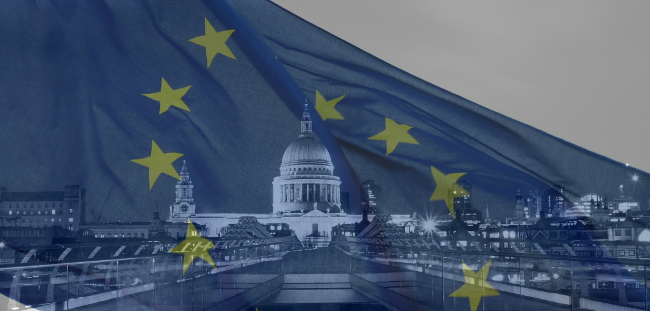As someone who spends much of his time listening to left-wingers, I’m used to seeing people upset after losing an election.
Contrary to popular cliché, such events rarely look like the five stages of grief, and the aftermath of the British decision to leave the European Union has been no different.
If anything, since the initial shock remainers’ bitterness has calcified. Journalists and part-time pundits have gone out of their way to emphasise any news that confirms their view that the decision was a disaster.
Dimwitted comparisons with British prime minister Neville Chamberlain’s phony peace with Germany, and the Suez Crisis of 1956 have also abounded – though one led to one of history’s grisliest wars, and the other is usually cited as confirmation of an inevitable decline rather than a consequential mistake.
The coining or recycling of clichés is always a sign that groupthink has set in. People too lazy or inept to think for themselves repeat not just the sentiment of others, but the phrasing too.
Witness the rise of “poisoned chalice” to describe the premiership in post-referendum Britain, as well as the ease with which it sits alongside the untested assertion of Theresa May’s competence and nous. At least one of these views must be untrue.
Pundits have also refrained from retracting the claim that “leavers” deliberately shrank from power after the referendum as Boris Johnson moves into the Foreign Office, even as they gleefully celebrate his new exposure to the exit negotiations.
Anyone who believes Johnson wanted to be humiliated by fellow leaver Michael Gove has clearly forgotten his comments about the ball coming “loose from the back of a scrum”, or simply ignored the Sunday Times‘ behind the scenes view of his collapsing campaign.
At the same time those that attack Ukip’s ex-leader Nigel Farage for stepping down after achieving his long-held political ambition are the same who bewailed the prospect of him being involved in the exit negotiations.
Politicians are at least respected as agents in all of this, unlike the leave voters who are deemed thick and misinformed, even alongside “educated” graduate remainers who cannot name a single good reason to leave the EU.
Lawyers are concocting various schemes to undermine the referendum result, demanding that Parliament have a say on the legal mechanism for Brexit being triggered, in the hopes that the Commons will block it. A very European strategy, it must be said.
Others are calling for a second vote, or claiming that Britons should have been trapped in the EU even if most of us wanted to leave, via the arbitrary threshold of a two-thirds majority.
The case for direct democracy is a hard one to make when we all lack the time to become properly informed on most issues, but the EU referendum was at core a vote on who governs us – much like a general election.
It’s true that most of the public are not aware of the structure of the EU, how laws are passed or many other basic facts about its workings.
But Western democracy has never lent on the idea that voters have perfect information, and it’s not obvious how one would set an adequacy threshold even in a normal election, or justify the inevitable shrinking of the working class vote that would follow.
Many on both sides of the referendum also saw it as a vote on nativism against cosmopolitanism, and voted accordingly. This is another hazard of popular democracy, and it’s hard to see why it nullifying the referendum would not nullify popular democracy in general.
Nobody can claim the leave campaign, or even its counterpart, were studies in careful deliberation of the EU’s costs and benefits.
But the petulance of the remain campaign after the vote, as well the shallowness of its arguments, have done its proponents even less credit. If one claims a monopoly on sound reasoning, it helps if the reasoning is sound.
Image Credit – St Paul’s Cathedral, March 2016 by Descrier
